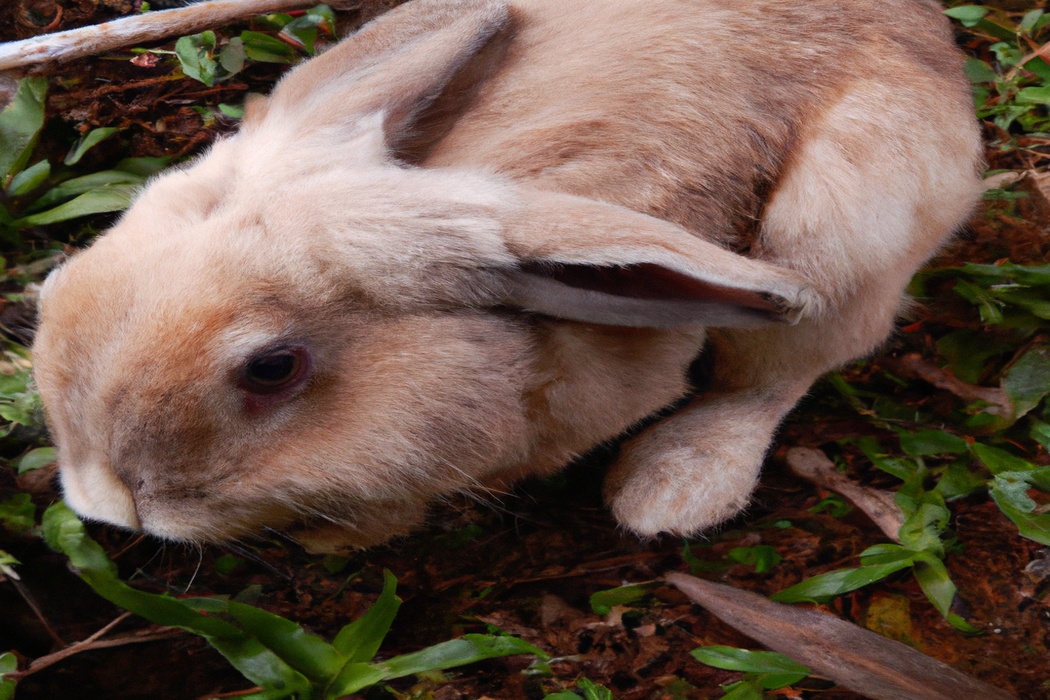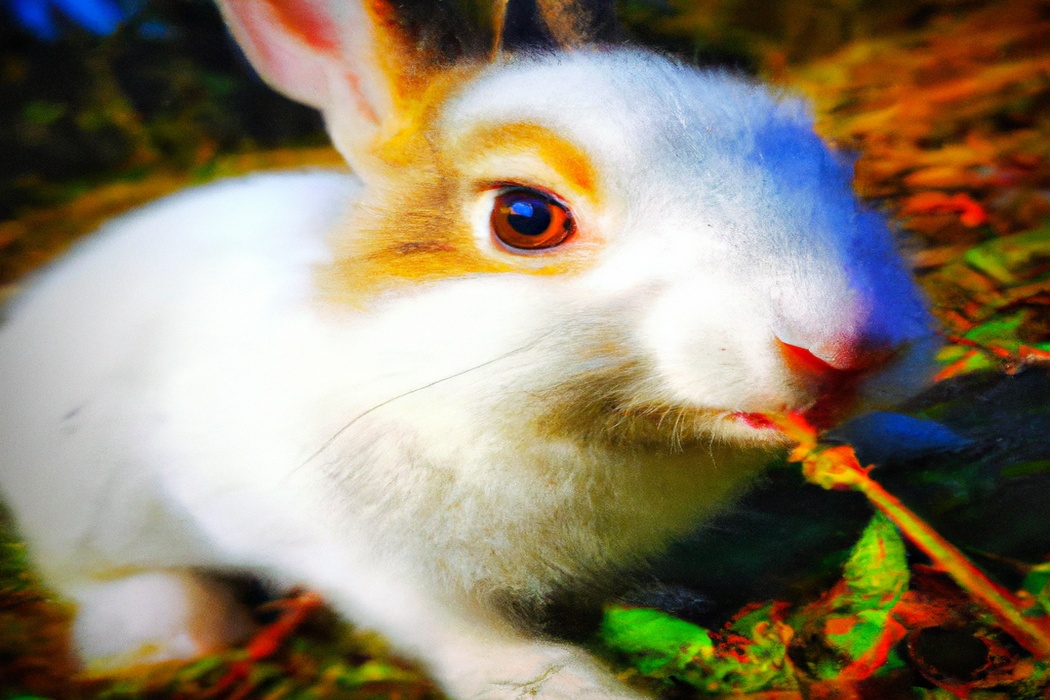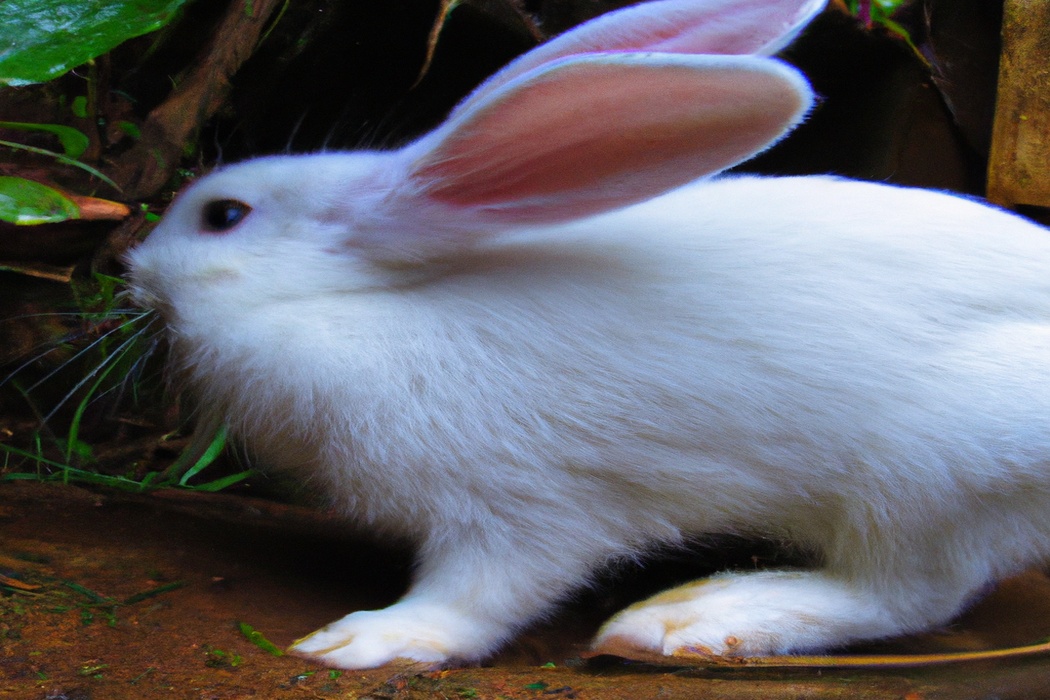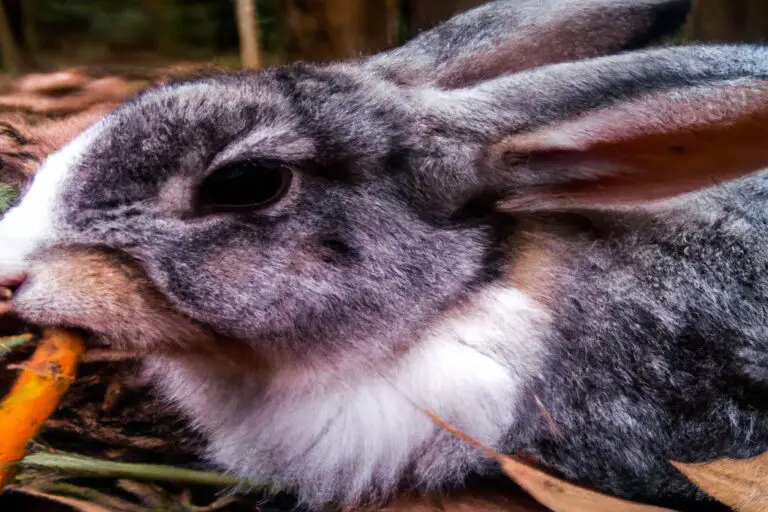Are Blueberries Good For Rabbits: A Tasty Treat for Bunnies!
Key Takeaways:
- Blueberries are a safe and nutritious treat for rabbits in moderation.
- Blueberries provide essential vitamins and antioxidants for a rabbit’s overall health.
- Introduce blueberries slowly to a rabbit’s diet to avoid digestive problems.
- Remember to always wash blueberries thoroughly before feeding them to your rabbit.
Are you a rabbit owner looking to spice up your furry friend’s diet? Well, look no further than the vibrant and delicious blueberry! These tiny, succulent fruits have not only captured our hearts but have also become a popular topic in the world of rabbit nutrition.
But are blueberries good for rabbits?
In this article, we’ll take a deep dive into the topic and explore the nutritional benefits that blueberries can offer to your beloved bunnies. Get ready to discover a whole new way to treat your furry companions!
| Question | Answer |
| Can rabbits eat blueberries? | Yes, rabbits can eat blueberries in moderation. |
| Are blueberries beneficial for rabbits? | Blueberries are a good source of vitamins and antioxidants, which can be beneficial for rabbits. |
| What nutrients do blueberries provide? | Blueberries are low in calories and fat, and they contain fiber, vitamin C, and manganese. |
| How should blueberries be served to rabbits? | Blueberries should be washed thoroughly and served as a treat. They can be given whole or sliced into smaller pieces. |
| How often can rabbits eat blueberries? | Blueberries should be given to rabbits as an occasional treat, not as a main part of their diet. Once or twice a week is usually sufficient. |
| Are there any risks associated with feeding blueberries to rabbits? | While blueberries are generally safe for rabbits, it is important to introduce any new food gradually to monitor for any signs of digestive upset. |
Can rabbits eat blueberries?
Rabbits can eat blueberries, but moderation is key.
Overview of blueberries as a rabbit food
Blueberries can be a nutritious treat for rabbits.
They are low in calories and high in vitamins and antioxidants.
However, blueberries should only be offered as an occasional snack, and in moderation.
Too many blueberries can cause digestive issues in rabbits due to their high sugar content.
It’s important to always wash the blueberries thoroughly before feeding them to your rabbit.
And remember, while blueberries can be a tasty addition to your rabbit’s diet, they should not replace their primary food source of hay and fresh vegetables.
Nutritional benefits of blueberries for rabbits
Blueberries are a tasty treat that can also provide nutritional benefits for rabbits.
They are a good source of vitamins, such as vitamin C and vitamin K, which are essential for the rabbit’s health.
Blueberries are also rich in antioxidants, which help protect the rabbit’s cells from damage.
Additionally, they contain fiber, which can support healthy digestion.
However, it’s important to remember that blueberries should only be given in moderation as a treat, as too many can upset the rabbit’s digestive system.
Potential drawbacks of feeding blueberries to rabbits
Feeding blueberries to rabbits can have potential drawbacks.
Blueberries are high in sugar, which can cause digestive issues and obesity in rabbits.
Additionally, the high water content in blueberries can lead to diarrhea if consumed in large quantities.
It’s important to remember to always introduce new foods to your rabbit’s diet slowly and in small amounts.
If you notice any negative reactions after feeding blueberries, such as upset stomach or changes in stool consistency, it’s best to discontinue feeding them to your rabbit.
How to feed blueberries to rabbits
To feed blueberries to rabbits, provide small portions as a treat, a few times a week. Be sure to wash them thoroughly before serving to remove any pesticides or harmful substances.
Serving size and frequency
When it comes to serving size and frequency of blueberries for rabbits, it’s important to keep a balanced approach.
A good guideline is to offer a small portion, about the size of their paw, once or twice a week.
Blueberries are high in natural sugars, so moderation is key.
It’s also important to introduce new foods slowly and observe your rabbit’s reaction.
Remember to always consult with a veterinarian for personalized advice based on your rabbit’s unique needs.

Precautions and preparation tips
Precautions and preparation tips for feeding blueberries to rabbits:
- Wash the blueberries thoroughly to remove any pesticides or chemicals. It’s important to ensure that the berries are safe for your rabbit to consume.
- Only offer blueberries as an occasional treat, and in small amounts. Rabbits have sensitive digestive systems, so feeding them too many blueberries can cause stomach upset.
- Introduce blueberries to your rabbit’s diet gradually. Start with a small piece and monitor their reaction. If there are no adverse effects, you can continue to offer them as a treat.
- Remove any stems, leaves, or seeds from the blueberries before feeding them to your rabbit. These parts can be choking hazards and are not safe for rabbits to consume.
- Remember that blueberries should not be the main component of your rabbit’s diet. They should be given alongside a balanced diet of hay, fresh vegetables, and limited amounts of pellets.

Alternative fruits for rabbits
Other fruits that are safe for rabbits include apples, bananas, strawberries, and watermelon.
Safe fruits for rabbits
Safe fruits for rabbits include apples, strawberries, raspberries, bananas, and watermelon.
These fruits can provide important vitamins and fiber for your furry friend.
Remember to introduce new fruits gradually to prevent digestive upset, and remove any seeds or pits before feeding.
It’s also important to offer a balanced diet that includes a variety of vegetables and hay.
Monitor your rabbit’s reaction to different fruits and consult with a veterinarian if you have any concerns.

Comparison of nutritional value between blueberries and other fruits
Blueberries are a nutritious fruit that is rich in antioxidants, vitamins, and fiber.
When comparing their nutritional value to other fruits, it’s interesting to see how they stack up.
Blueberries have a higher antioxidant content compared to most fruits, which can help protect against cell damage and boost overall health.
They also contain high levels of Vitamin C, Vitamin K, and manganese.
However, when it comes to certain nutrients like Vitamin A and potassium, other fruits like oranges and bananas take the lead.
Nonetheless, incorporating a variety of fruits into your rabbit’s diet can provide a well-rounded nutritional profile.
Frequently Asked Questions about feeding blueberries to rabbits
Can rabbits eat the leaves or stems of blueberry plants?
Rabbits can eat the leaves and stems of blueberry plants.
However, it’s important to remember that blueberry plants contain small amounts of toxins that may cause mild digestive issues in rabbits.
Introduce blueberry leaves and stems gradually into your rabbit’s diet to see how they react.
Monitor for any signs of discomfort or change in bowel movements.
If they tolerate it well, you can offer blueberry leaves and stems as occasional treats in moderation.
Can blueberries be given as a treat or a regular part of a rabbit’s diet?
Yes, blueberries can be given as a treat or a regular part of a rabbit’s diet.
They are a nutritious fruit that is safe for rabbits to consume.
Blueberries are high in antioxidants and provide essential vitamins and minerals.
However, moderation is key when it comes to feeding blueberries to rabbits.
Too many blueberries can cause digestive issues.
It is recommended to offer blueberries as an occasional treat, rather than a regular part of their diet.
Always introduce new foods slowly and monitor your rabbit’s reaction.
Are there any concerns about blueberries causing digestive issues in rabbits?
There are no major concerns about blueberries causing digestive issues in rabbits. Blueberries are generally safe for rabbits to eat as an occasional treat.
However, like any new food, it’s important to introduce blueberries gradually and in small amounts to avoid potential digestive upset.
Monitor your rabbit’s stool consistency and overall health after giving them blueberries. If you notice any changes or concerns, consult with a veterinarian.
Final Verdict
Blueberries can be a nutritious and tasty addition to a rabbit’s diet. While they offer several health benefits, including antioxidants and vitamins, it is important to feed them in moderation to prevent digestive issues.
Serve blueberries as occasional treats rather than a regular part of their diet, and always wash them thoroughly before feeding.
If blueberries are not available, other rabbit-safe fruits like strawberries and apples can be offered instead. By following these guidelines, you can provide your rabbit with a balanced and enjoyable diet.







